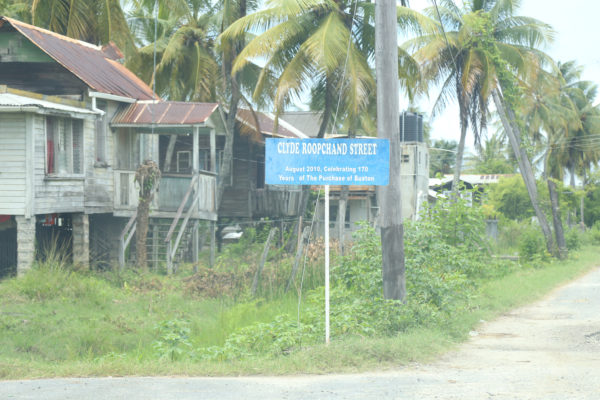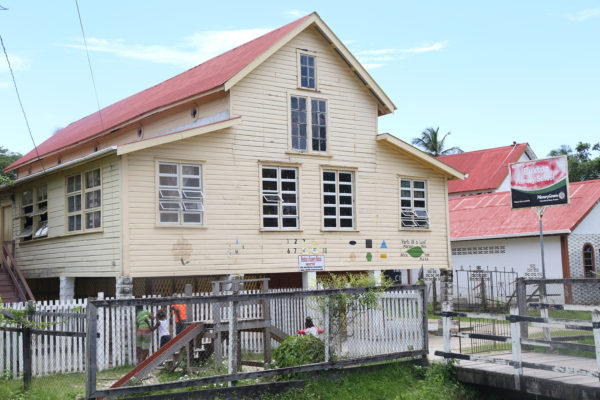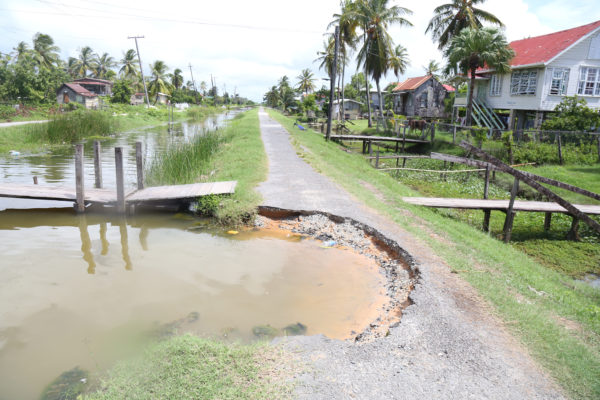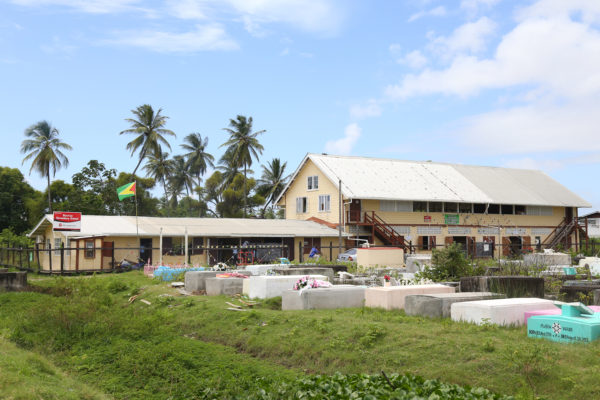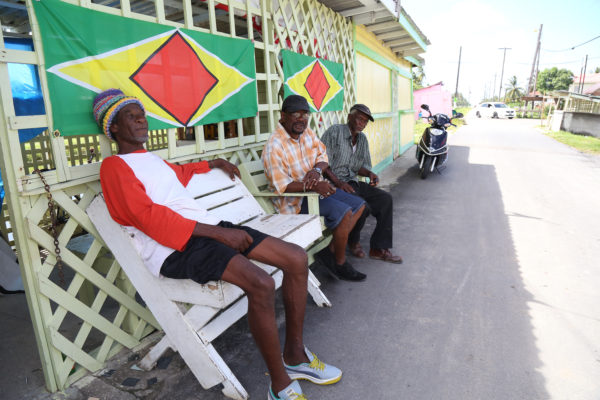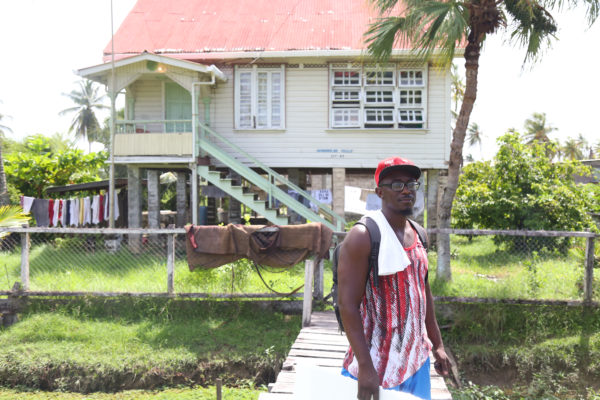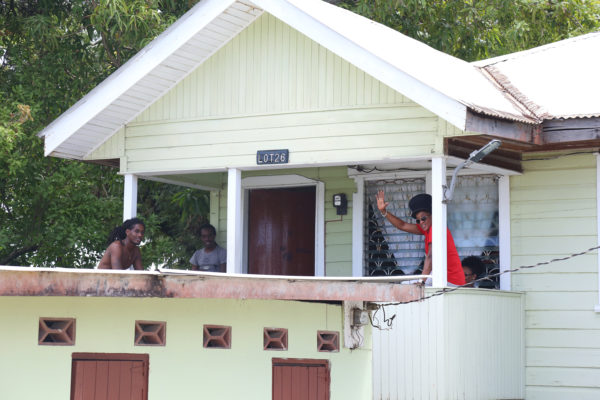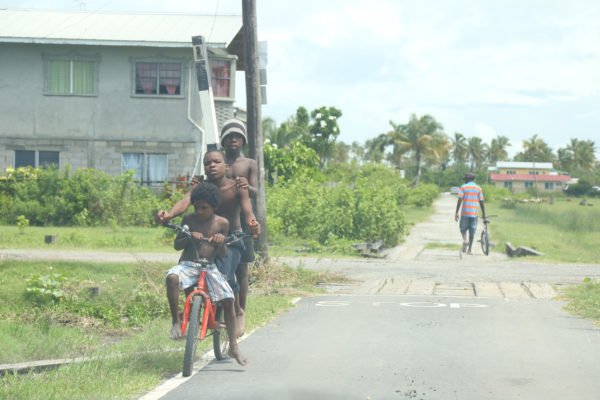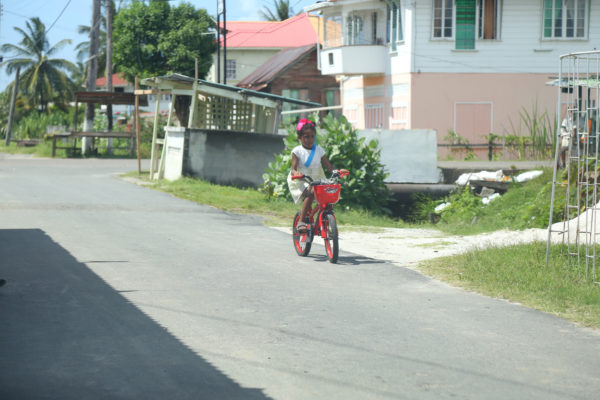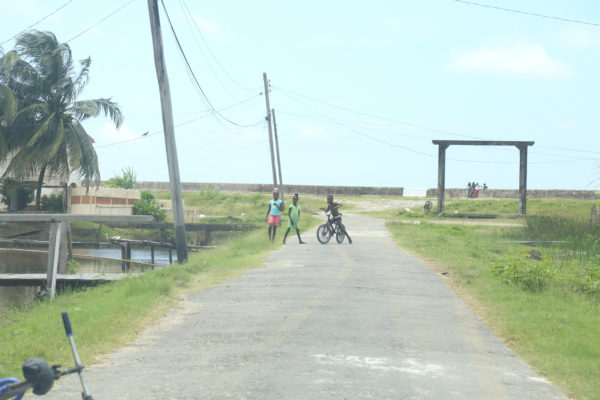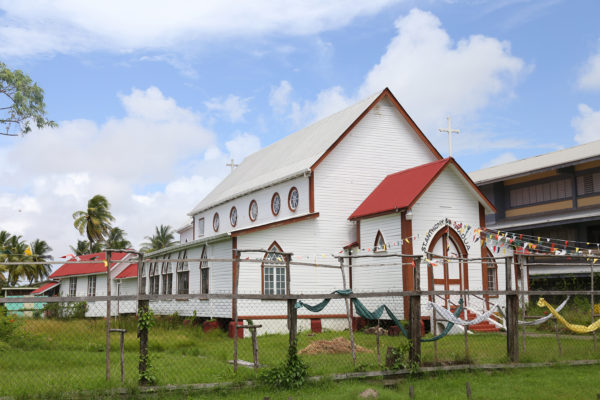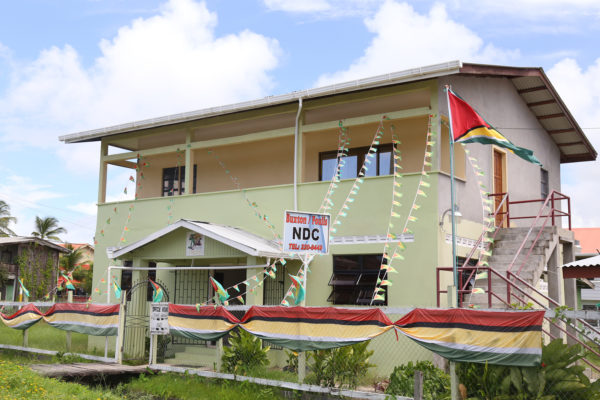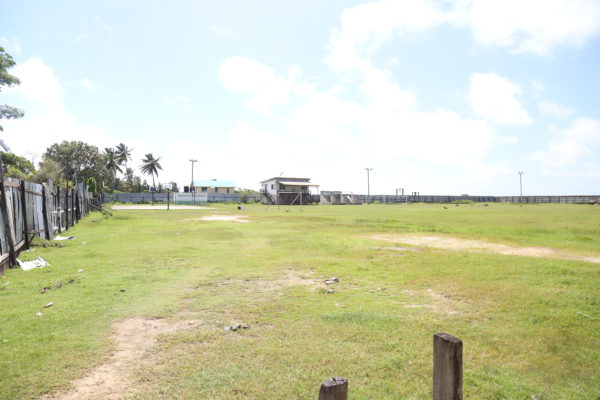With photos by Keno George
It has only been a few days since schools closed for the August holidays, but the children of Buxton, East Coast Demerara have already assumed their rightful places in the niches of their community.
The face of a small boy, no more than two, peeks through the frame of a corner shop. Another slightly older one approaches, presumably to purchase ration.
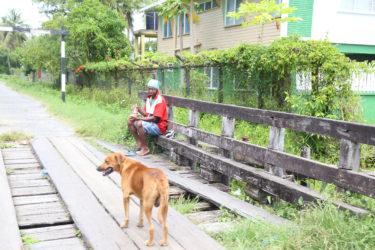
Around the corner, the voice of a woman carries. She responds, in slight agitation, responds to a little girl’s antics with, “you ain know I getting a headache?”
In the heat of the midday sun, a group of children congregate once again in the school yard—this time for leisure—and scatter when the photographer approaches.
“You ain wan tek out we picha to?” a man shouts from his verandah. The shout came from Michael Anthony, who was in the company of two other men and a woman. Anthony volunteered one of the other men to speak, but nevertheless interjected at intervals.
Terry Cadogan, 32, having lived in Buxton all his life, commented that everything was “normal,” but complained of the condition of the streets and gutters. His street, which borders the village of Friendship, is littered with potholes, and according to him, there is need for clearing of the drainage system.
“Tell them about the water,” Anthony chimed in. The two went on to explain—in turns—the schedule by which water is delivered to the community. They told of how water comes through the taps from about 6 am to 10 am every day and then ceases until 3 in the afternoon, after which it will flow until 10 pm. It has been that way for as long as they can remember.
There is not much night life in the village, Cadogan said, describing the area as the “residential” area for Buxton.
“Any big swing they get haysuh, is a funeral,” Cadogan said jokingly, adding that any liming is usually done on the “line top”.
In Company Street, as many as eight boys occupy a trench, unbothered by the muddiness of the water. They dive from an adjacent wooden bridge.
On the other side of the trench, on the street referred to as Company Dam, there is a hole so huge that only a strip of roadway remains.
When resident Jermaine Gilkes was asked about it, he said he reported the matter over a year ago but nothing has been done so far. Gilkes, who migrated when he was 12, moved back to Buxton early last year and lives just a few houses from the bridge where the hole is located.
He believes that section of oad was eroded from constant trampling by the children who frequent the trench daily and because there is no wooden barrier in that section to prevent the water from wearing the soil away.
Apart from this obstruction, Gilkes had many positive things to say about his village, commenting that Buxton is “one of the power villages on the East Coast.” He does not believe it changed much in his absence, except for what he referred to as “structural changes,” and noting that disciplining is much more difficult because the children now “talk back to big people.”
Gilkes was on his way to the Buxton market where he owns a shop, when he was approached by the World Beyond Georgetown. As we conversed in front of his house, the words “Honduras Ville,” painted in italics across the bottom of the structure, stood out.
“Well, there’s a story behind that,” he said. According to him, his great-grandfather had travelled from Honduras, where he owned a sawmill company. The wood that built the house was shipped all the way from there.
Further up Company Street, lounging on a bench, was an elderly gentleman by the name of Compton Isaacs and his company for the day, Ovid Peters.
Peters, a farmer, formerly played football for his village. “Every night we look at all the news, and a lot of loans giving out and the different projects, but we need to see ministers more,” Peters stated.
The farmer, who declared that he plants “all the fruits in Guyana,” is especially interested in a visit from the Minister of Agriculture.
In terms of sports affairs in the community, he stated that there was one young girl, a runner, who travelled overseas recently to compete, but he could not recall her name. The sports ground, located at Friendship road, he said needed upgrading, and perhaps a few more stands installed.
“There’s no crime really,” he further reported, noting that “everybody in Buxton alright” and that most crimes were of a petty nature.
His friend, Winston Joseph, joined midway through the conversation, and fell in naturally.
Joseph spared no praise when he spoke of his village. “The best life you will get in the entire country is in Buxton,” he declared. Buxton, which he referred to as “the premiere village.
“I am positive we’ve produced more doctors in this village in the last four years than any other village,” he said matter-of-factly, urging anyone to check the stats.
